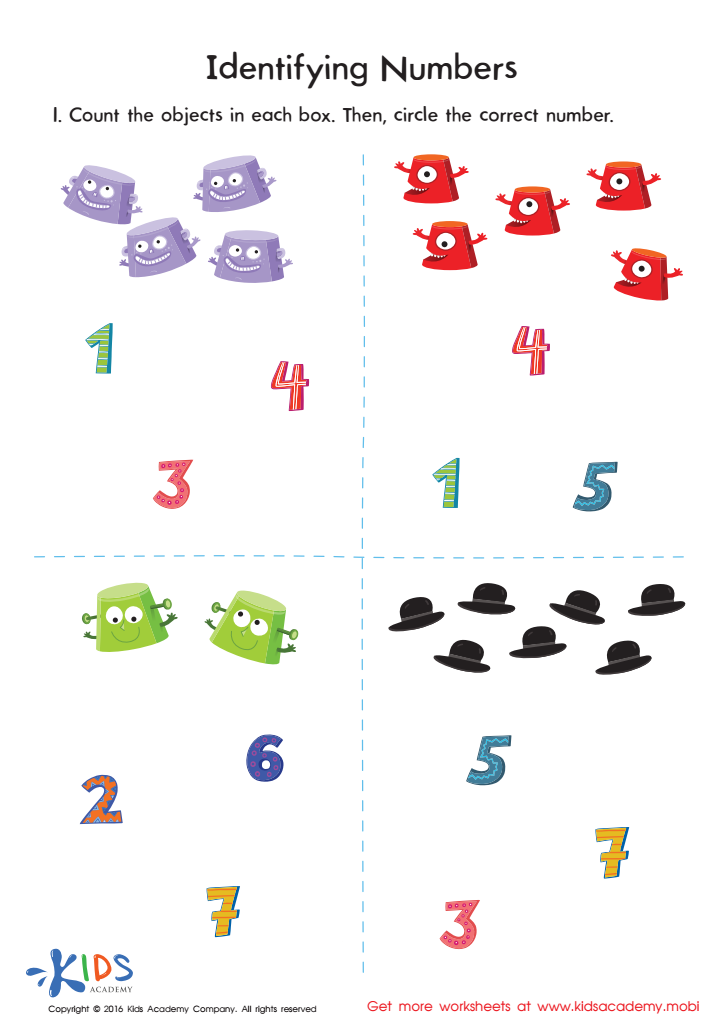Counting skills Extra Challenge Matching Worksheets for Ages 3-5
5 filtered results
-
From - To
Take counting to the next level with our Counting Skills Extra Challenge Matching Worksheets for Ages 3-5! Designed to engage young learners, these worksheets help develop critical early math skills through fun and interactive activities. Each worksheet features colorful illustrations and stimulating challenges that promote number recognition, counting proficiency, and matching precision. Ideal for preschool and kindergarten students, these printables can be seamlessly integrated into any learning environment. Perfect for parents and educators seeking to enhance their child’s mathematical abilities while making learning enjoyable. Dive into smart, playful, and educational counting challenges today!
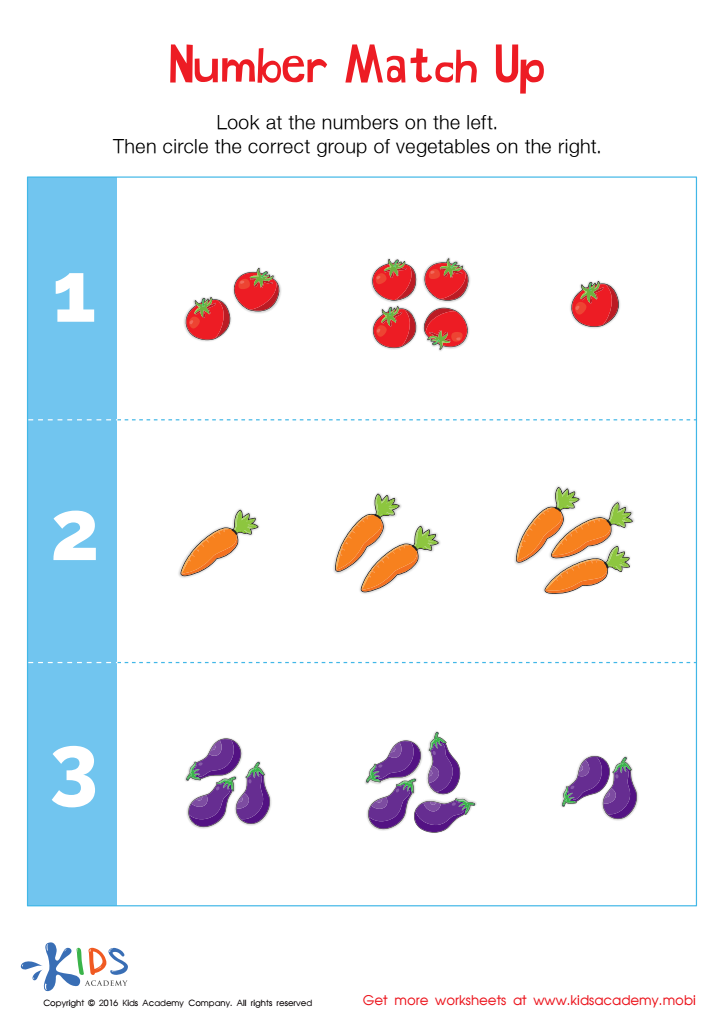

Number Match Up Worksheet
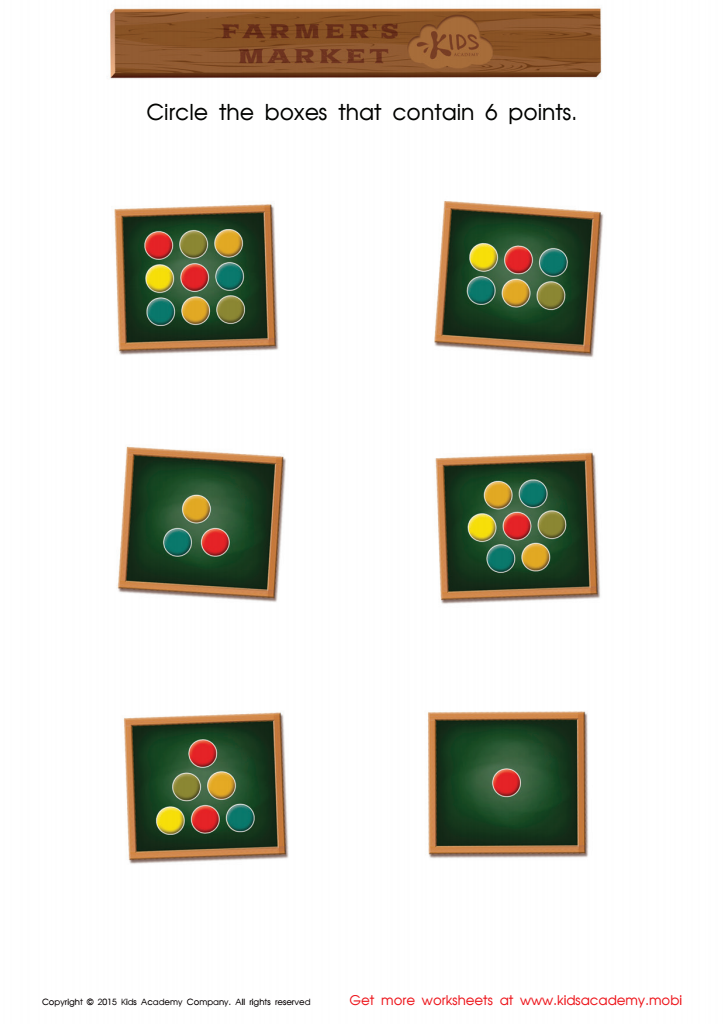

Count and Match Points 6 Math Worksheet
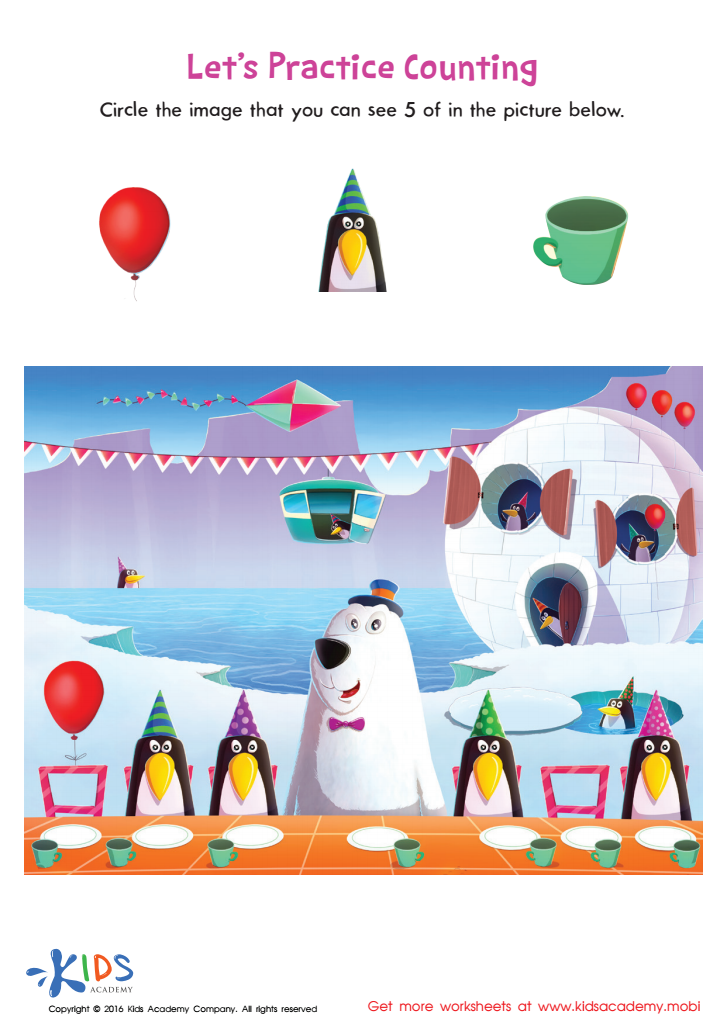

Counting Worksheet: Let's Practice Counting
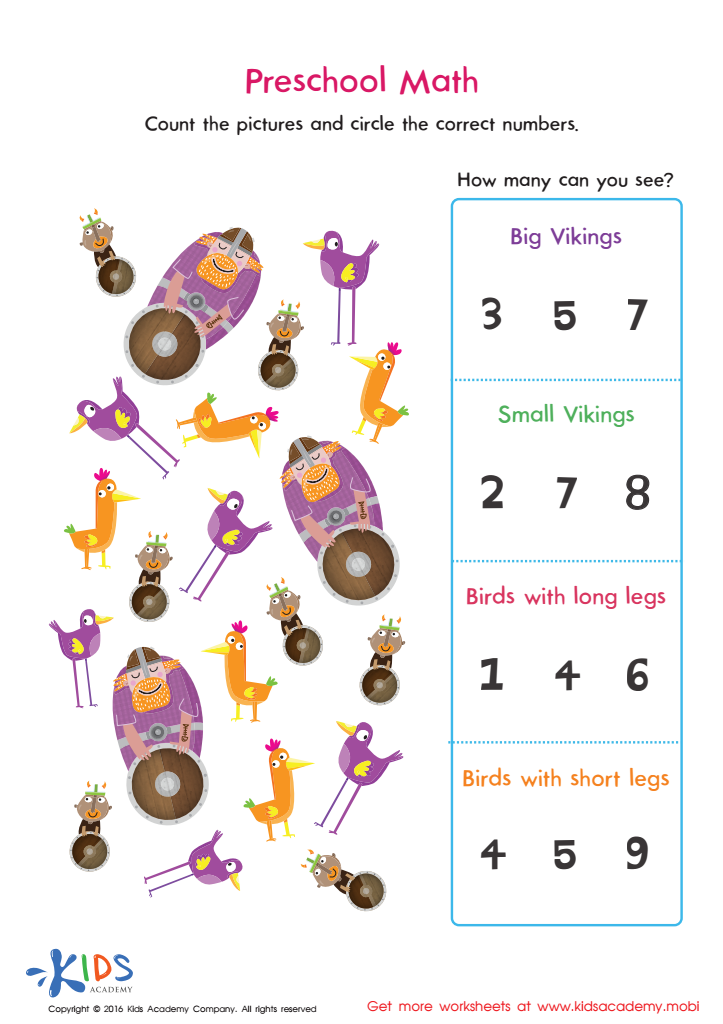

Counting skills at ages 3-5 lay the groundwork for numeracy which is crucial for a child's future success in math and daily life. At this young age, children are just beginning to understand numbers and their relationships.
Incorporating extra challenges through matching activities can enhance cognitive development and spatial awareness. Matching requires children to recognize patterns, understand concepts of sameness and difference, and develop sorting skills, which are fundamental for more advanced math concepts.
Parents and teachers should care about these skills because they help build a child's confidence and enthusiasm about learning. When children successfully complete counting and matching tasks, they gain a sense of achievement that sparks curiosity and motivation to tackle more complex problems.
Furthermore, integrating counting with matching ensures that children are not only able to count but also to understand the quantity represented by numbers. This prepares them for future mathematical reasoning and problem-solving, necessary for more complex concepts like addition and subtraction.
Engaging in these activities also offers opportunities for social interaction and language development, as children often discuss what they observe and do. Therefore, paying attention to counting skills and providing extra challenges at this early stage forms a solid foundation for comprehensive academic growth.
 Assign to My Students
Assign to My Students

